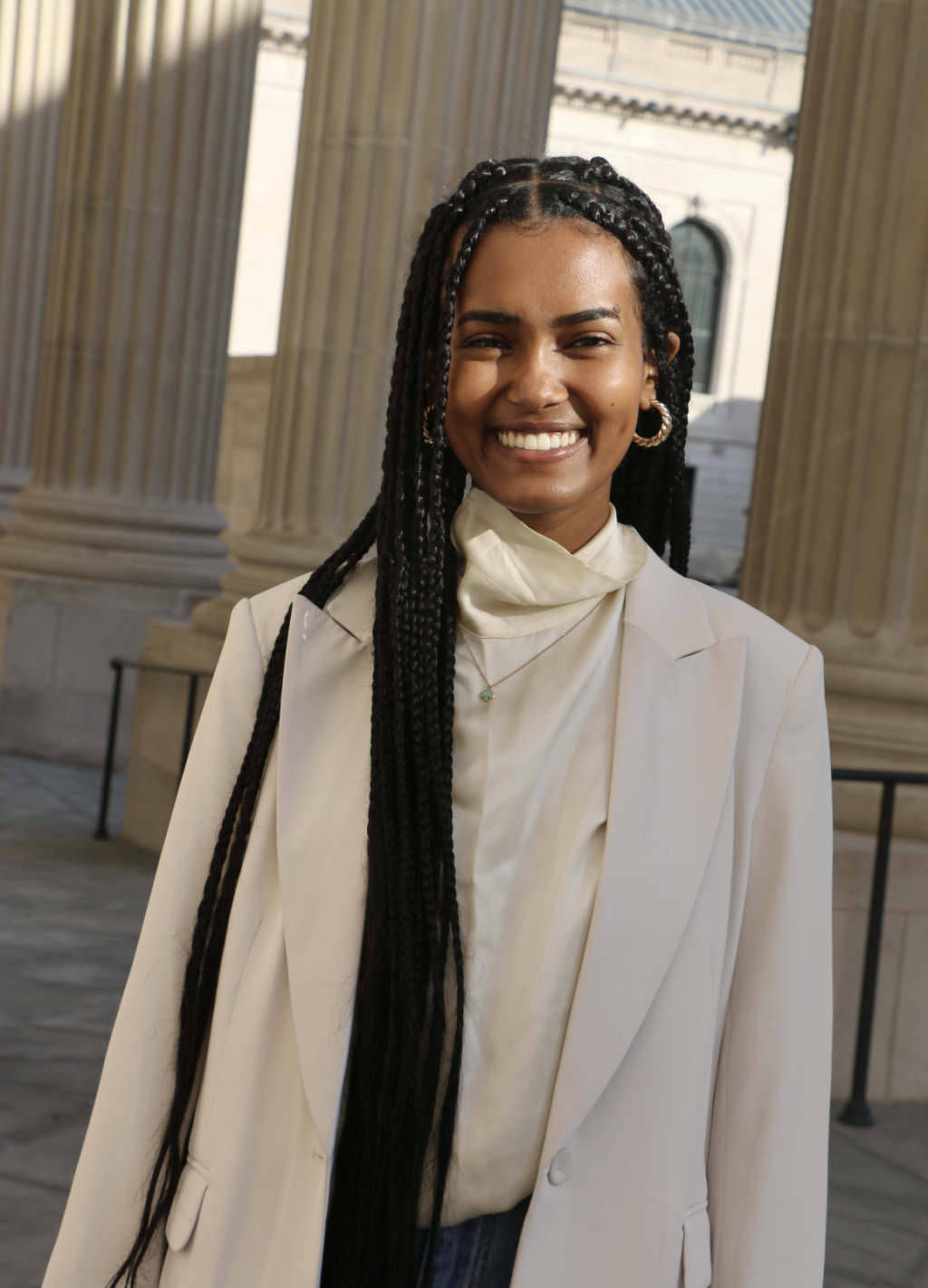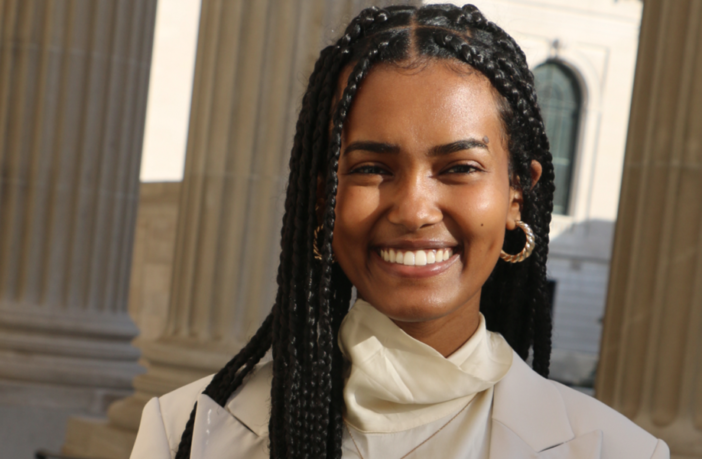In an effort to highlight the people who are leading colleges and universities across the nation, we at Watch The Yard reached out to Yale University and did an interview with Leleda Beraki the 2022-2023 Student Government Association president.
The position of SGA president is a highly respected role and there is a special pride that one takes in being elected by their peers to lead. Beraki, who is majoring in Biomedical Engineering and African Studies, is from Asmara, Eritrea.
We interviewed Beraki, and talked to her about her position, goals, future and what it means to hold this type of leadership position in 2022-2023.
Read the full interview below.
What is the biggest thing you’ve learned as an SGA president so far?
I’ve always thought of a president as an effective speaker, but just about everything in this role has taught me the importance of listening. Being student body president means I’m running in multiple circles at once: undergraduates, alumni, deans, and non-Yale affiliated groups – and with each conversation, I feel like I’m gaining so much wisdom. I came into this role with a lot of opinions on how I thought things should run, but I’ve quickly learned that there are many experiences I can’t claim, years of institutional history I didn’t witness, and relationships that were made, broken, and repaired before I was here. I’ve learned that being president is as simple as creating spaces to listen and learn.
What made you decide to attend Yale University for undergrad?
It took endless pros and cons lists and family debates to choose Yale, but there’s no other way I would have wanted to do it. I chose Yale for the same reasons many students do – academic prestige, the beautiful campus, incredible students from all over the world. But above that, I chose Yale for my family. I knew this is where the love and time they poured into me would flourish.
How has Yale University molded you into the person you are today?
Coming into Yale at the height of the pandemic forced me to face many of my academic and social fears head on. I used to be someone who pushed until I had nothing left to give, but I quickly learned how unsustainable that was. From Zoom fatigue to failing my first exam, I had to come to terms with my limits as a human being. It’s hard to imagine that being at a rigorous institution has taught me to take pause, but it has. I’ve become much more intentional with my choices and learned the importance of moderation. Although it’s been a humbling experience, I’ve also learned to value my worth and be firm in my identity. There’s so much of who I am today that I attribute to the many friends I found through Yale.
What specific initiatives have you headed up this year (or are planning) and how do you think they will improve the school and surrounding community?
The Yale College Council has always been centered around the intricacies of student life with things like financial aid and academic policy. Although we plan to continue advocating within the confines of our campus, we are also pushing to step out of them. This year, we created a position within the Executive Board that was filled by two New Haven residents. We want to engage with the city in meaningful ways by supporting existing initiatives and local advocacy organizations. Yale and New Haven have a long and complex history that has, unfortunately, fed into the way students choose to interact with the city. We are hoping to encourage students to step outside of the “Yale bubble” and begin supporting the space we occupy – whether it be eating and shopping local or attending events.
How is your SGA administration/school currently working on attending to the mental health of students?
Although the infrastructure for mental health support exists, many students are faced with wait times of up to two months or professionals they struggle to relate to. Yale has begun creating programs to improve access as a result of student pressure, however, the YCC is still pushing for more diversity in the therapists hired and the rate at which we hire them. We have also decided to couple our work on this issue with advocacy for improved academic and social standards. Things like competitive grading, poor advising, and application-based clubs all contribute to student stress. The YCC is collaborating with organizations and faculty in hopes of shifting campus culture. There have to be coordinated efforts across the different facets of campus life if we hope to truly promote mental well-being.
What does leadership mean to you?
Leadership, to me, is about having the empathy and vision to turn diverse thoughts into unified actions.

We now live in a digital world, what do you think schools need to do to represent themselves online in 2022/2023?
Since coming to college, I’ve become active on social media because I want to remove the air of mystery around higher education. Before Yale, I had no idea what being in a lecture hall looked like or how I was supposed to communicate with professors, and I think a lot of students don’t. Living in a digital world is an opportunity for us to remove barriers of access to many things, education being one of them. Schools now have the chance to reach thousands of students from around the world in authentic and meaningful ways. Most importantly, I think universities need to move away from facades of perfection – the truth is we are all imperfect people finding our way in college and even after.
Why do you think Watch The Yard is important to Black students and college culture?
I think Watch The Yard is a beautiful example of how we are endlessly surrounded by Black excellence. Students all over the country are impacting their campuses and on their way to impacting the world with inestimable potential. It’s a reminder to keep pushing and pursuing with no bounds.

What do you plan on doing after graduation?
After graduation, I hope to pursue a Master’s in Public Health and begin working in the biotechnology sector with a global health focus. In the long term, I want I find my way back to Africa… maybe to Botswana or maybe somewhere new. Coming to the United States was a privilege I don’t take lightly, but I want to contribute to the communities that made me who I am.
We at Watch The Yard would like to commend Leleda Beraki for her work as the SGA president of Yale University.



